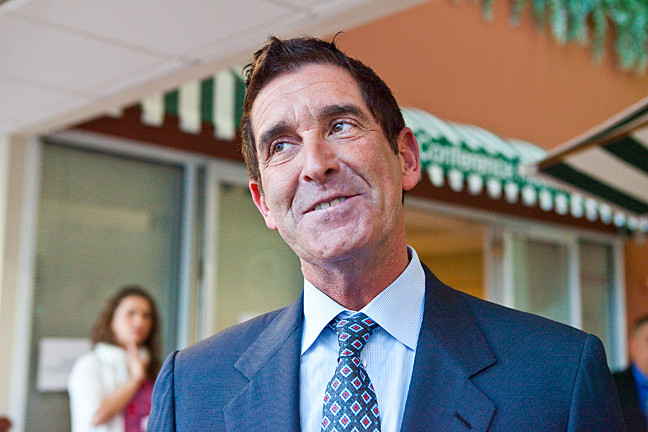Klein, law partner tag-team to score big on appointments
Courthouse Patronage: Third in a series
Bronx state Sen. Jeff Klein has done well in politics, rising this year to become one of Albany’s top kingmakers. He’s also done well in the often politically influenced world of court appointments. State court records show that Mr. Klein and a longtime law partner who has doubled as his legislative aide have been among the biggest winners when it comes to legal fees earned from judicial designations.
Records show that since June 2003, when reforms aimed at limiting the appointments of politically tied officials were implemented, Mr. Klein and his law partner, Dominick Calderoni, have earned nearly $730,000 in fees for work performed as court-appointed fiduciaries.
The fees were awarded by the courts after Mr. Klein and Mr. Calderoni were selected by judges to represent individuals unable to care for themselves, including the elderly and the incapacitated. A Riverdale Press survey has found that despite repeated efforts to separate the courts from the political clubhouse, politically connected officials still benefit from a system in which judges need political backing to win election to the bench.
Records show that Mr. Klein took in at least $155,300 from appointments he’s received since June 2003, from judges in the Bronx and Nassau County. Mr. Calderoni has done even better, hauling in more than $570,000 in similar appointments since that date, from courts in Bronx, Nassau, Queens and Westchester counties.
The two men have been partners since the mid-1990s in the Bronx-based law firm of Klein Calderoni & Santucci. Mr. Calderoni has also been a longtime political advisor. When Mr. Klein was first elected to the state Assembly in 1994, he named Mr. Calderoni as his part-time legislative legal counsel. After Mr. Klein won a Senate seat in 2004, Mr. Calderoni went along as part of his Senate staff. Mr. Calderoni resigned the Senate position in 2011 after news reports that he was receiving state-paid medical benefits while working the minimum number of hours needed to qualify.
Close ties
Mr. Klein and Mr. Calderoni have also been closely paired in the legal work they’ve done as judicial court appointees — so closely, in fact, that some clients told The Press they were confused about which attorney was in charge.
In July, 2008, for instance, Mr. Klein was appointed by a Nassau County judge to evaluate whether a guardian was needed for an elderly woman named Mildred Cohen, who had recently been moved into a nursing home by her family.
Many of Mr. Klein’s and Mr. Calderoni’s judicial appointments have been to serve as evaluators who are designated to conduct interviews with family members, health care professionals and others concerning the party in need. Evaluators then file a report of their findings with the court.
Mr. Klein recommended to the court that a guardian should be named and in January 2009, Judge Angela Iannacci appointed one: She named Mr. Klein.
Affidavits filed in the case indicate that Mr. Klein did the work. But Ms. Cohen’s daughter, Rabbi Judith Cohen-Rosenberg, said that she spoke only to Mr. Calderoni on the telephone, not to Mr. Klein. She didn’t question the substitution.
“I have no idea what was supposed to happen,” she told The Press. “I was so overwhelmed with my mother’s care, I just went with it.”
The substitute
It wasn’t the only case in which the law partners worked as a kind of legal tag team. In early 2009, records show that Mr. Calderoni asked the court to substitute Mr. Klein for himself on an upcoming case, that of Cecil Ward, a proprietor of a car dealership in Elmont, Long Island whose family worried that his mental condition was deteriorating.
The reason for the substitution request was that Mr. Calderoni had had a banner year in 2008, earning $127,076 in fees from fiduciary cases. That figure far exceeded a cap of $75,000 that the state’s Office of Court Administration has placed on the amount any attorney can earn from fiduciary appointments in a single year. (The original cap, part of the 2003 reforms, was placed at $50,000. It was later increased after protests that the amount was too low.)






